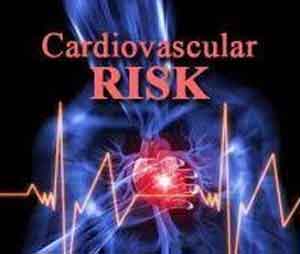- Home
- Editorial
- News
- Practice Guidelines
- Anesthesiology Guidelines
- Cancer Guidelines
- Cardiac Sciences Guidelines
- Critical Care Guidelines
- Dentistry Guidelines
- Dermatology Guidelines
- Diabetes and Endo Guidelines
- Diagnostics Guidelines
- ENT Guidelines
- Featured Practice Guidelines
- Gastroenterology Guidelines
- Geriatrics Guidelines
- Medicine Guidelines
- Nephrology Guidelines
- Neurosciences Guidelines
- Obs and Gynae Guidelines
- Ophthalmology Guidelines
- Orthopaedics Guidelines
- Paediatrics Guidelines
- Psychiatry Guidelines
- Pulmonology Guidelines
- Radiology Guidelines
- Surgery Guidelines
- Urology Guidelines
New Therapies for risk reduction in Diabetes with CVD: ACC guidance

The American College of Cardiology has released new guidance on novel therapies for reduction of cardiovascular (CV) risk in patients with atherosclerotic cardiovascular disease and type 2 diabetes (T2D).
The guidance, published in the Journal of the American College of Cardiology, recommends the use of sodium-glucose cotransporter 2 (SGLT2) inhibitors and glucagon-like peptide-1 receptor agonists (GLP-1RAs) in patients with T2D and established a clinical atherosclerotic cardiovascular disease, for lowering their CV risk.
Clinicians should provide guideline-directed medical therapy (e.g., lipid-lowering treatment, antiplatelet therapy) and glucose-lowering treatment like metformin. At the same time, they should consider adding an SGLT2 inhibitor (empagliflozin is the preferred agent) or a GLP-1RA (liraglutide is preferred) with proven CV benefit following a discussion with the patient.
Also Read: Cardiology Update: Utility of nontraditional risk markers in atherosclerotic CVD assessment
As per the recent evidence, SGLT2 inhibitors have been associated with a 14% reduced risk for major adverse CV events relative to placebo. GLP-1RAs have been associated with up to a 26% risk reduction, but in some studies, there was no significant benefit.
This is the latest Expert Consensus Pathway document, part of ACC's ongoing Clinical Pathway efforts to provide cardiovascular professional practical guidance, particularly in areas of emerging science where evidence is limited.
SGLT2 inhibitors increase the risk for genital mycotic infections. GLP-1RAs are associated with transient nausea and vomiting.
Cardiologists should consider adding a glucose-lowering drug proven to have cardiovascular benefits for patients with type 2 diabetes and established atherosclerotic cardiovascular disease (ASCVD) to reduce risk in these patients. They should be aware of the evidence supporting the use of SGLT2 inhibitors and GLP-1RAs in this regard.
"Previously, cardiovascular care in patients with diabetes was centred around risk factor optimization, and the medications used for glycemic control were not expected to demonstrate direct [cardiovascular] benefit. The recent development of two novel classes of therapies – SGLT2 inhibitors and GLP-1RAs – has, for the first time, demonstrated that treatments developed for glucose lowering can directly improve cardiovascular outcomes," write the authors.
Also Read: Cardiology Update: SPAIN trial Pacemaker Program Can Reduce Dangerous Fainting Episodes
Key Takeaways from the Document:
- Clinicians should provide guideline-directed medical therapy (e.g., lipid-lowering treatment, antiplatelet therapy) and glucose-lowering treatment like metformin. At the same time, they should consider adding an SGLT2 inhibitor (empagliflozin is the preferred agent) or a GLP-1RA (liraglutide is preferred) with proven CV benefit following a discussion with the patient.
- The pathway provides practical guidance on when and how to incorporate the use of SGLT2 inhibitors and GLP-1Ras in the treatment of patients with T2D and ASCVD with the express goal of reducing cardiovascular risk and optimizing outcomes.
- The pathway also strongly encourages patient discussions that review of risks, potential benefits, and different treatment options.

Disclaimer: This site is primarily intended for healthcare professionals. Any content/information on this website does not replace the advice of medical and/or health professionals and should not be construed as medical/diagnostic advice/endorsement or prescription. Use of this site is subject to our terms of use, privacy policy, advertisement policy. © 2020 Minerva Medical Treatment Pvt Ltd